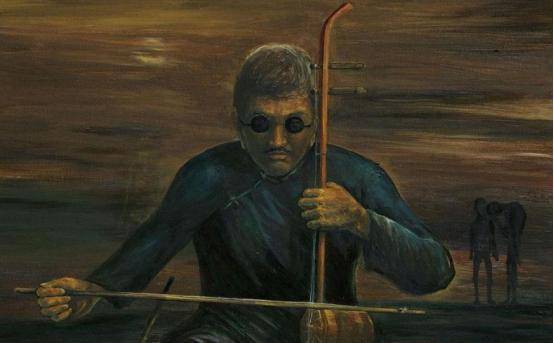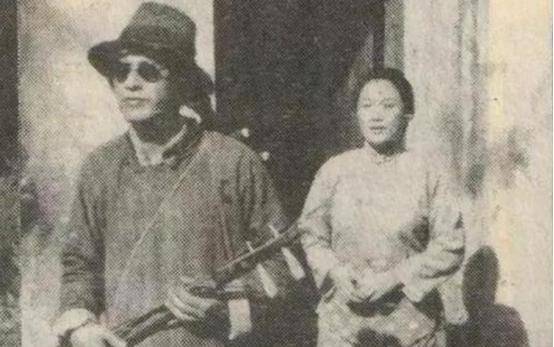The Life of Blind Musician A Bing
The Republic of China is an era that is not far from us. In this era, many literati and bachelors were born, as well as various romantic love stories. All the masters of the Republic of China or the literati of the Republic of China who can see their names in history books basically have Families with certain economic conditions, but there is one person who is an exception. This person is A Bing, who many people have heard of but may not know very well.

A Bing's original name is quite literate, called Hua Yanjun. When he was 4 years old, his mother also died, so A Bing was brought up by his aunt.

A Bing had a very rich childhood experience. When he was 8 years old, he became a little Taoist priest. After that, he followed his father to perform in order to make a living. He learned a lot of musical instruments from it. A very musically gifted person.
Because of practicing musical instruments for many years, A Bing has a temperament that is different from ordinary people. In addition, A Bing's voice condition is not bad, so A Bing is loved by many people.
Careless making friends is the most common reason for destroying life, and A Bing is no exception. Under the instigation of his friends, A Bing learned to smoke opium and search for flowers and willows. Blind, in order to make a living, he had to continue to perform on the streets.
During this period, relying on his own sense of sound, A Bing also composed famous songs such as "Erquan Reflecting the Moon" and "Listening to the Pine", which are very classic until now.

Although A Bing's talent is still there, his habit of being a drug addict has never been corrected. Whenever he makes a little money, A Bing will buy opium. Therefore, under this situation, A Bing's body becomes more and more the worse.
In 1929, A Bing married a widow, and the two began to live together. After A Bing, he lived an ordinary and fulfilling life. Erhu became the thing that A Bing accompanied the most in a day.
In addition, because A Bing still has some fame, he was also invited to shoot the movie "Seventh Heaven", played a mass role in the movie, and also wrote a song for the movie "Seventh Heaven". The tune is the aforementioned "Ting Song".

After the founding of New China, some music academies were established one after another. As a well-known musician, A Bing was invited by many schools to record "Erquan Reflecting the Moon" and "Ting Song". The version is the version recorded by A Bing in 1950.
However, at the end of the year in 1950, A Bing died of illness in Wuxi and was finally buried at the foot of Canshan Mountain in the suburbs of Wuxi. The deceased A Bing also had no peace. In 1979, A Bing's tomb was damaged, and finally it was moved to Huishan District, Wuxi City in 1983. In order to express the memory of A Bing, the locals also paid tribute to A Bing. It casts a statue.
Whenever "Erquan Yingyue" plays, people will think of A Bing, a musician with extraordinary life experience.

A Bing's life was full of many hardships. It is said that the only photo left today is a photo on a "good citizen certificate". From A Bing's thin face, we can see the hardships of his life, but A Bing Bing's life is more like a microcosm of the characters of that era. As mentioned earlier, it was an era when many people couldn't even eat. Bing was able to ensure his own food and clothing while performing. Such luck.

Until now, when people mention A Bing, it is more of a pity for an artist. Of course, it is not difficult to see from A Bing's experience that A Bing knows nothing except music. It can be said that He is just for a living. It can also be said that he has a love for music, but A Bing's musical attainment is not to be criticized. In A Bing, we see a lonely artist. He may have I insist on music, but I have also indulged my own desires. Instead, I feel like a living person.
 渝公网安备 50010702504639号
渝公网安备 50010702504639号